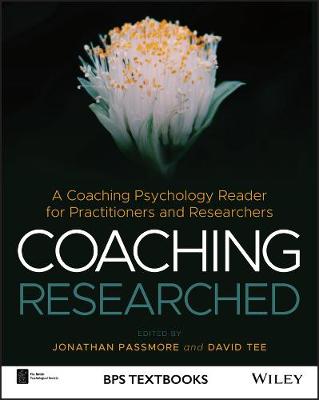BPS Textbooks in Psychology
3 total works
Coaching Psychology
by Jonathan Passmore, Anthony M. Grant, Stephen Palmer, and Christian van Nieuwerburgh
Coaching Researched – A Coaching Psychology Reader
by Jonathan Passmore and David Tee
A comprehensive review of the practice and most recent research on coaching
Coaching Researched: Using Coaching Psychology to Inform Your Research and Practice brings together in one authoritative volume a collection to the most noteworthy papers from the past 15 years from the journal International Coaching Psychology Review. Firmly grounded in evidence-based practice, the writings are appropriate for the burgeoning number of coaching researchers and practitioners in business, health, and education.
The contributors offer a scientific framework to support coaching's pedagogy and they cover the sub-specialties of the practice including executive, health, and life coaching. The book provides a comparative analysis in order to differentiate coaching from other practices. Comprehensive in scope, the book covers a wide-range of topics including: the nature of coaching, coaching theory, insights from recent research, a review of various coaching methods, and thoughts on the future of coaching. This important book:
- Offers a collection of the most relevant research in the last 15 years with commentary from the International Coaching Psychology Review journal's chief editor
- Contains information on both the theory and practice of the profession
- Includes content on topics such as clients and coaching, an integrated model of coaching, evidence-based life coaching, and much more
- Presents insights on the future of coaching research
Written for students, researchers, practitioners of coaching in all areas of practice, Coaching Researched offers an accessible volume to the most current evidenced-based practice and research.
Occupational and Organizational Psychology
by Jonathan Passmore, Adrian Furnham, Lisa Mathewman, and Gail Steptoe-Warren
This new BPS Textbook in Psychology provides a definitive, BPS-accredited student introduction to the key concepts of occupational and organizational psychology, written by respected authorities in the field. An introductory section on the history of the field, career pathways for occupational psychologists, and the scientist-practitioner model of practice, leads into coverage of core material such as psychological assessment, research methods, training, leadership, workplace well-being, and organizational development. Concise (approximately 2500 words, to-the-point chapters allow professors to easily plan the outlines for lectures or other learning units, and case studies illustrate the principles in action. A series of expert commentaries from renowned thought leaders provide further insights into likely future developments across key areas of the field: examples of these include Rob Briner on evidence-based practice, Kurt Kraiger on training and development, Andy Field on the use of quantitative data, Michael West on teams and Beverley Alimo-Metcalfe on leadership and employee engagement. Many of these will also be available on a companion website as podcasts.

